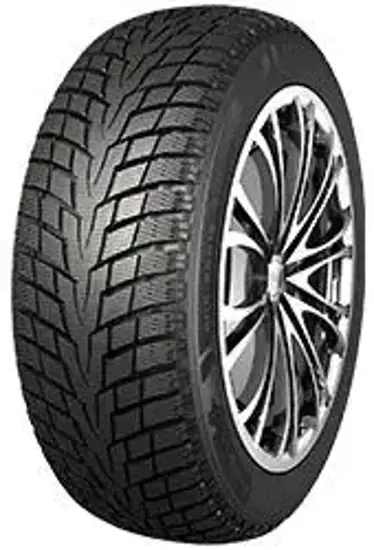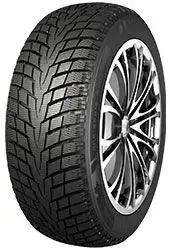Nankang Ice-1 215/60 R17 100Q
Technical specifications
Description
- Center ribs and directional tread pattern deliver the straight-direct stability and maneuverability on snowfield.
- Reticulated tread pattern grooves strengthen the grip capability on snowfield.
- Serrate 3D sipes at central part enhance the capability for icy-shoveling and snow-sweeping, as well as reinforce the rigidity of pattern block and stability of straight-direct.
- Rectangular 3D sipes at shoulder area enhance the strength of pattern blocks and prevent the pattern blocks from being over-deformed when rolling or braking, hence to improve the safety of driving.
The Nankang Ice-1 is an inexpensive quality tire from Asia. The tire is produced by a tire manufacturer with many years of experience in the tire production.The Nankang Ice-1 is manufactured in a technologically advanced way and underlies strict qualities controls in each manufacturing step. Developed for a versatile use with best driving characteristics, the standards of quality become visible in every tire detail. The Nankang Ice-1 fulfils all requirements and standards of the European markets and offers an unbeatable price-performance-ratio at the same time.
Manufacturer information
EU Tyre Label
As of 01/11/2021, the European Tyre Labelling Regulation EU/1222/2009, (EU tyre label) applies. This regulation applies for all newly manufactured tyres as of CW27/2021.
The EU tyre label provides information about the criteria for fuel efficiency, wet grip and external rolling noise and is binding for all car, LGV and HGV tyres (classes C1, c2 and C3) within EU Member States.
The aim of the EU tyre label is to increase safety, environmental protection and efficiency of road traffic by promoting fuel-saving, safe and quiet tyres.
Alongside the EU tyre label, you should continue to consider the relevant tyre tests as an important factor in your decision to purchase, as the new EU tyre label tests only three important criteria. in this way, for example, the driving characteristic of summer tyres on a dry road is assessed just as little as the snow grip of winter tyres



 C
C
 Austria
Austria









